NEFAZODONE - ORAL
PHONETIC PRONUNCIATION: (neh-FAZZ-oh-doan)
COMMON BRAND NAME(S): Serzone
GENERIC NAME(S): nefazodone HCl
Uses
USES: This medication is used to treat depression. Because of the risk of liver disease, this medication is usually used after trying other drugs. Nefazodone works by helping to restore the balance of certain natural chemicals (neurotransmitters such as serotonin, norepinephrine) in the brain.
How to use NEFAZODONE - ORAL
HOW TO USE: Read the Medication Guide and Patient Information Leaflet provided by your pharmacist before you start using nefazodone and each time you get a refill. If you have any questions, consult your doctor or pharmacist. Take this medication by mouth with or without food, usually twice daily or as directed by your doctor. Dosage is based on your medical condition and response to treatment. To reduce your risk of side effects, your doctor may start you at a low dose and gradually increase your dose. Take this medication exactly as prescribed. Do not increase your dose or take this medication more often than prescribed. Your condition will not improve any faster, and the risk of serious side effects may be increased. Use this medication regularly in order to get the most benefit from it. To help you remember, take it at the same times each day. It is important to continue taking this medication as prescribed even if you feel well. Do not stop taking this medication without consulting your doctor. It may take several weeks before this drug takes effect. Tell your doctor if your condition persists or worsens.
Side Effects
Precautions
Interactions
Overdose
Images
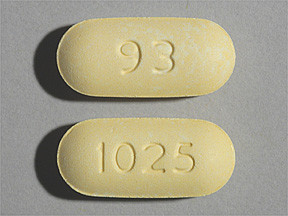
- color
- yellow
- shape
- oblong
- imprint
- 93, 1025
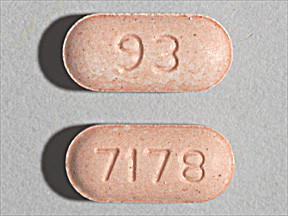
- color
- light pink
- shape
- oblong
- imprint
- 93, 7178

- color
- light pink
- shape
- oblong
- imprint
- 93, 7178
Reviews
Faq for NEFAZODONE - ORAL
Nefazodone is an oral medication used to treat depression.
Nefazodone works by increasing the levels of certain chemicals in the brain that help improve mood.
Common side effects of Nefazodone may include dizziness, drowsiness, nausea, vomiting, or dry mouth.
Nefazodone is primarily used for treating depression, but it can also be prescribed for anxiety disorders or other mental health conditions as determined by a doctor.
It can take several weeks for Nefazodone to start working effectively. It is important to continue taking the medication as prescribed, even if you do not see immediate results.
Yes, Nefazodone may interact with certain foods, drinks, or other medications. It is important to inform your doctor about all the medications (prescription, over-the-counter, and herbal) you are taking to avoid any potential interactions.
The use of Nefazodone during pregnancy or breastfeeding should be discussed with a healthcare provider. It is important to weigh the potential benefits against any possible risks to the mother and baby.
Nefazodone is not considered addictive, but suddenly stopping the medication may cause withdrawal symptoms. It is important to consult with a doctor before discontinuing Nefazodone.
If you miss a dose, take it as soon as you remember. However, if it is close to the time for your next dose, skip the missed dose and continue with your regular dosing schedule.
Warning
WARNING: Antidepressant medications are used to treat a variety of conditions, including depression and other mental/mood disorders. These medications can help prevent suicidal thoughts/attempts and provide other important benefits. However, studies have shown that a small number of people (especially people younger than 25) who take antidepressants for any condition may experience worsening depression, other mental/mood symptoms, or suicidal thoughts/attempts. Therefore, it is very important to talk with the doctor about the risks and benefits of antidepressant medication (especially for people younger than 25), even if treatment is not for a mental/mood condition. Tell the doctor right away if you notice worsening depression/other psychiatric conditions, unusual behavior changes (including possible suicidal thoughts/attempts), or other mental/mood changes (including new/worsening anxiety, panic attacks, trouble sleeping, irritability, hostile/angry feelings, impulsive actions, severe restlessness, very rapid speech). Be especially watchful for these symptoms when a new antidepressant is started or when the dose is changed. Nefazodone has rarely caused very serious (possibly fatal) liver disease. Tell your doctor right away if you develop symptoms of liver disease, including severe stomach/abdominal pain, unusual tiredness, persistent loss of appetite, dark urine, yellowing eyes/skin, persistent nausea/vomiting. Before using this medication, tell your doctor if you have liver disease or abnormal liver function tests. Your doctor should perform liver function tests periodically while you are taking this medication. If your doctor directs you to stop taking this medication because of liver problems or abnormal liver function tests, you should not take this drug again. Consult your doctor or pharmacist for more details.
Disclaimer
IMPORTANT: HOW TO USE THIS INFORMATION: This is a summary and does NOT have all possible information about this product. This information does not assure that this product is safe, effective, or appropriate for you. This information is not individual medical advice and does not substitute for the advice of your health care professional. Always ask your health care professional for complete information about this product and your specific health needs.
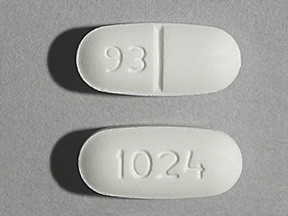
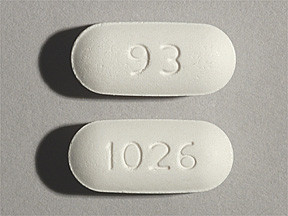
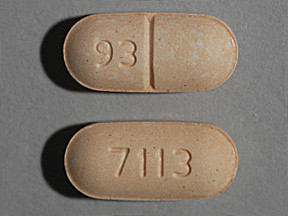
No Reviews Yet